Our review of Dragon’s Dogma II, developed by Capcom. Available now for PS5 (reviewed), Windows, and Xbox X/S.
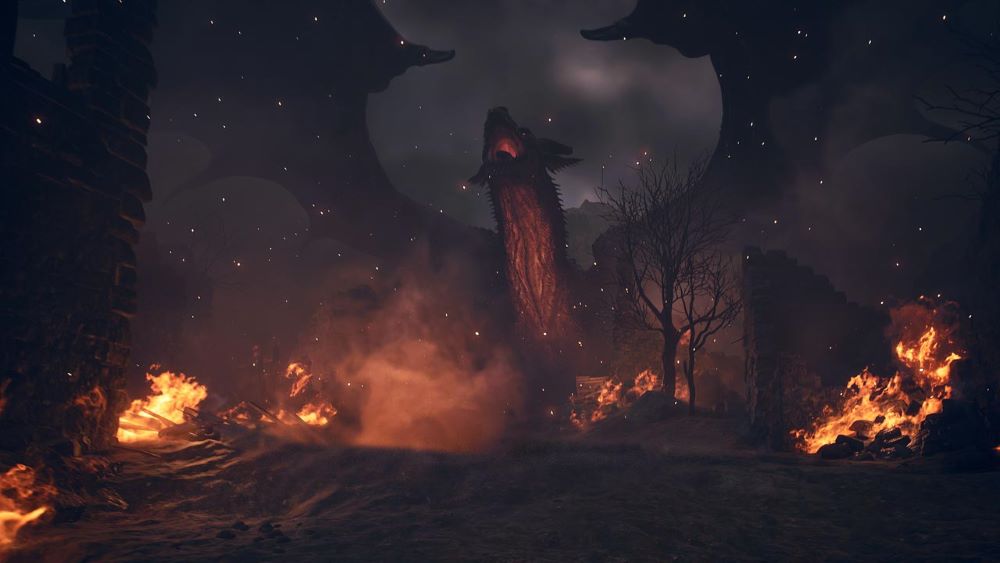
WHAT IS IT?
A goofy Elden Ring.
IS IT GOOD?
It has its moments, though the artificial difficulty can occasionally be exasperating.
WHO SHOULD PLAY IT?
Fans of Elden Ring who thought the fast travel system was too fair.
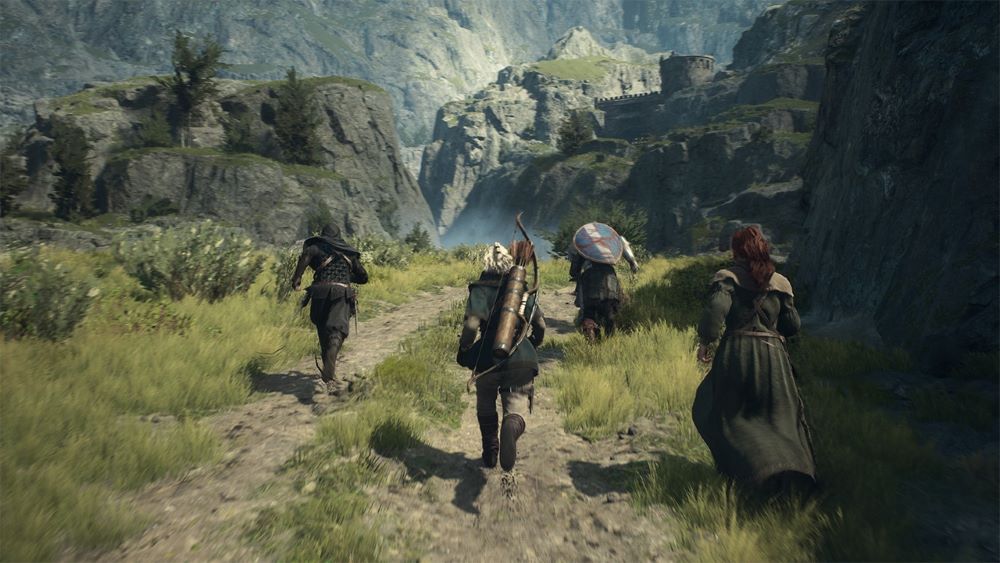
FUS RO DAH
Dragon’s Dogma II is a massive open-world action-RPG with lots of dragons and lots of tough-as-nails combat.
If that sounds familiar, it’s because – in only the most superficial terms – DDII is loosely inspired by Elden Ring and other of its Soulslike brethren. But where Elden Ring is spooky and ominous, DDII is resolutely goofy, committed to a very specific – and very Capcom – brand of absurdist, wilfully clumsy game design.
Where Elden Ring is tough because it wants to teach you through tough love, DDII is tough because it is, frankly, all over the place, with wild difficulty spikes, AI-controlled companions who misbehave, and an approach to environmental design that can best be described as “Don’t go out at night. Ever.”
And yet, despite all that wonkiness – including abysmal voice acting, even worse writing, and a confusing array of systems and missions that never quite seem to cohere – somehow, DDII works. DDII doesn’t always make sense – and when it does, it’s usually to its detriment – but in the same way that classic 80s and early 90s games didn’t necessarily need a narrative or fully functional gameplay to be fun, so too does DDII succeed despite its quirks. I wouldn’t recommend it to everyone – the voice acting alone could kill a small animal – but there are definitely some great rewards for those who venture down its strange, janky path.
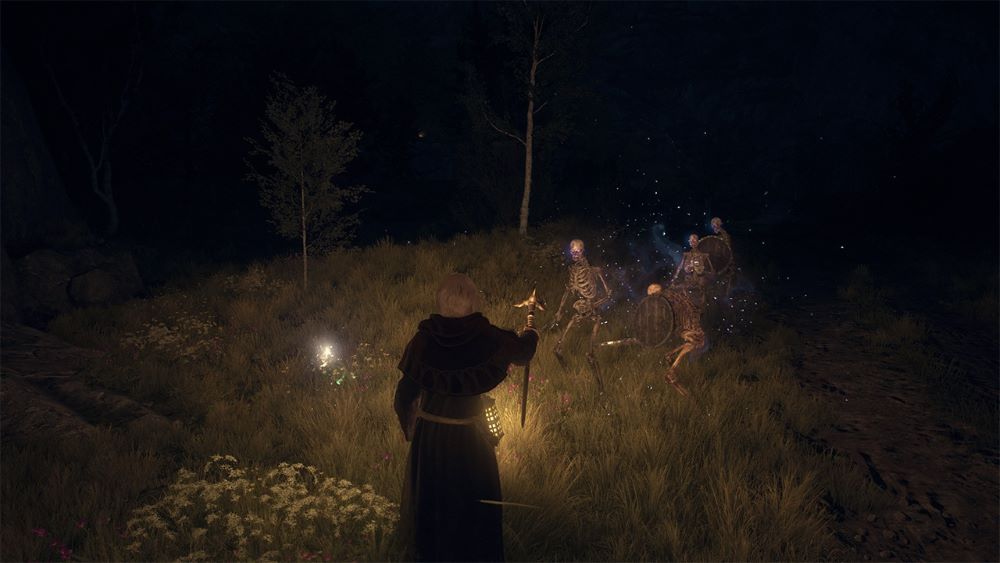
HAND OF GOD
The original Dragon’s Dogma, released all the way back in 2012 on the PS3 and Xbox 360, was a fascinating, if not entirely successful, experiment in open-world RPG design from Capcom, clearly trying to replicate the success of the then-recent Dark Souls. The original DD was a minor success, selling significantly better in its native Japan than in North America, where it is best remembered as a cult classic. That’s appropriate, because with DDII Capcom doubles down on the B-movie vibe of this burgeoning series, happily defying fundamental aspects of modern game design such as functioning UI or a map that can be read.
But that wilful disregard for the basics of game theory is part of what gives DDII its charm; much like, say, Capcom’s own God Hand (2006, PS2), part of the fun is in trying to work around its plentiful broken systems, which can be manipulated both to the player’s – and, unfortunately, the enemy AI’s – advantage. And, like God Hand, the storytelling is so cheesy and over-the-top it’s hard not to smile at it.
Gameplay in DDII is of the standard, run-of-the-mill Action-RPG variety. Players choose from a variety of class builds, and can mix and match melee, ranged attacks, and magic abilities, all controlled in real-time.
There’s a story here – you’re the, wait for it, “chosen one” destined to something something evil queen something something – but it’s secondary to the story you craft yourself, exploring the exceedingly dangerous world as the courageous – or foolhardy – adventurer that you are. Unexpectedly coming across a haunted castle, or accidentally precipitating an all-village brawl when you bump into the wrong NPC, feels very much in keeping with classic RPG design, like all that goofing around we did back in the early Fallout and Elder Scrolls titles.
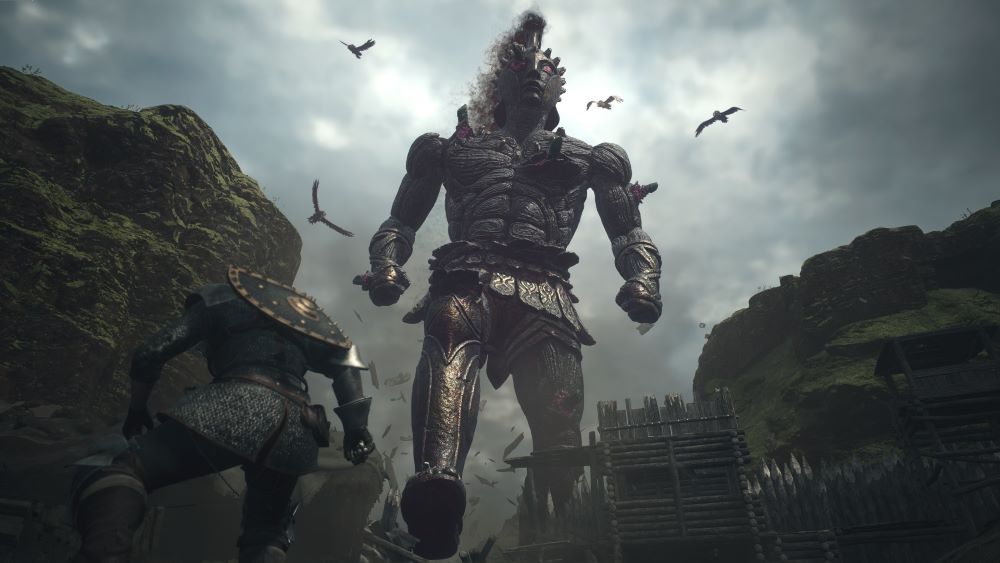
PAWN SACRIFICE
What makes Dragon’s Dogma II stand out, for good and for ill, is its Pawn system, which lets you recruit AI-controlled characters to serve as your unofficial posse, one that doesn’t necessarily follow your orders. It would be wrong to think of Pawns as a traditional RPG party – for one thing, they don’t always stick around – but rather as a group of characters who sort of, maybe, are prepared to help you out on occasion.
That said, Pawns are just as likely to disregard direct orders, whether by design or because of the game’s busted programming. In its own weird sort of way, it’s what gives the Pawns their personality, since you never can quite predict what they’re going to do or say next. (Though, good lord, they do repeat the same stock phrases a lot.) Add in DDII‘s unique asynchronous multiplayer design, in which you can recruit Pawns created by other (human) players to join your squad, and the feeling that you’re part of something bigger consistently works in DDII‘s favour.
What also works in DDII‘s favour is the way it balances healthy rewards for exploration against a merciless approach to punishing those unfortunate enough to take a wrong turn. It is not uncommon, especially in the opening hours, to find yourself instantly overwhelmed by a horde of enemies, the framerate dipping while you try to scramble out of reach of attacks coming from all sides (and with your Pawns refusing to help).
It’s unfair, no question. But it’s also something that you get used to as the game goes on, learning to recognize which areas are likely to pose the greatest challenge, and which ones offer respite or an interesting reward. Much like everything else in DDII, it never quite coalesces, but you come to accept it as part of the greater fabric of this particular video game universe. It helps a lot that the creature design is uniformly excellent, so at least when you’re getting mauled by the latest Harryhausenesque monster, you can marvel at the way it looks.
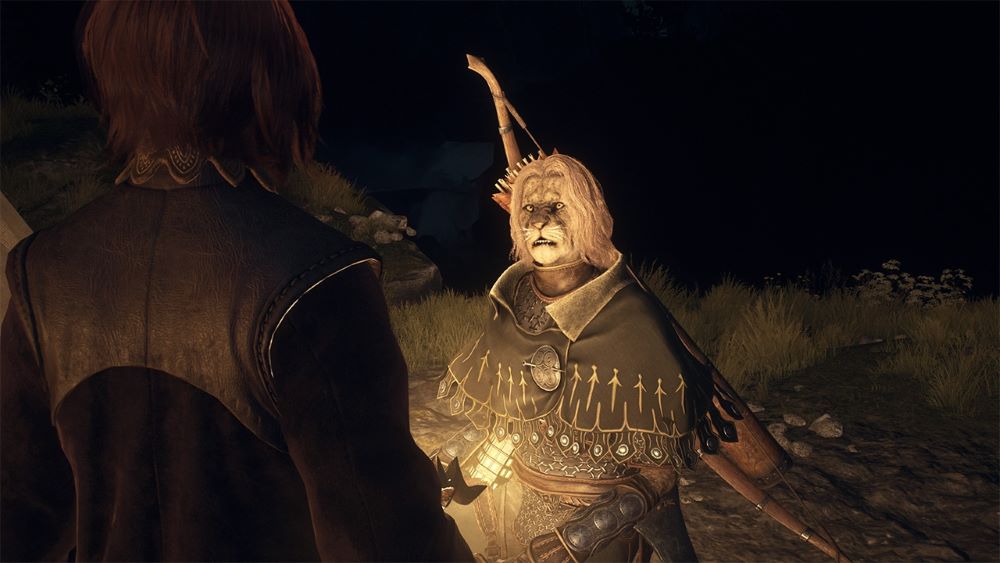
DOG DAYS
That said, there’s something unfortunate about the way DDII refuses to ever ease up on the player. Unlike the more pragmatic difficulty of the Soulslikes or Contra games, DDII is habitually unfair, forcing players to contend with, in no particular order, a lack of waypoints, AI companions that don’t do what they’re supposed to, graphics slowdown when enemies crowd the screen, a camera with a mind of its own, a nighttime “bleed effect” that persistently drains your health, and random difficulty spikes that punish you for having the audacity to, say, venture two steps into a forest to pick a berry.
Combined with a narrative structure that doesn’t offer the greatest impetus to keep moving, and the going can occasionally get rough in DDII. On the whole, however, the mere possibility of what lies out there – much like Elden Ring before it – is more than enough to justify the twenty to thirty hours required to complete the main story (and that’s not counting the host of hidden and not-so-hidden side quests that are usually worth the effort).
Dragon’s Dogma II may be imperfect, it may be messy, but it’s beautiful in its own broken sort of way.
***
Final score: 8/10 dragon hoards.
Visit the official website for Dragon’s Dogma II here.



